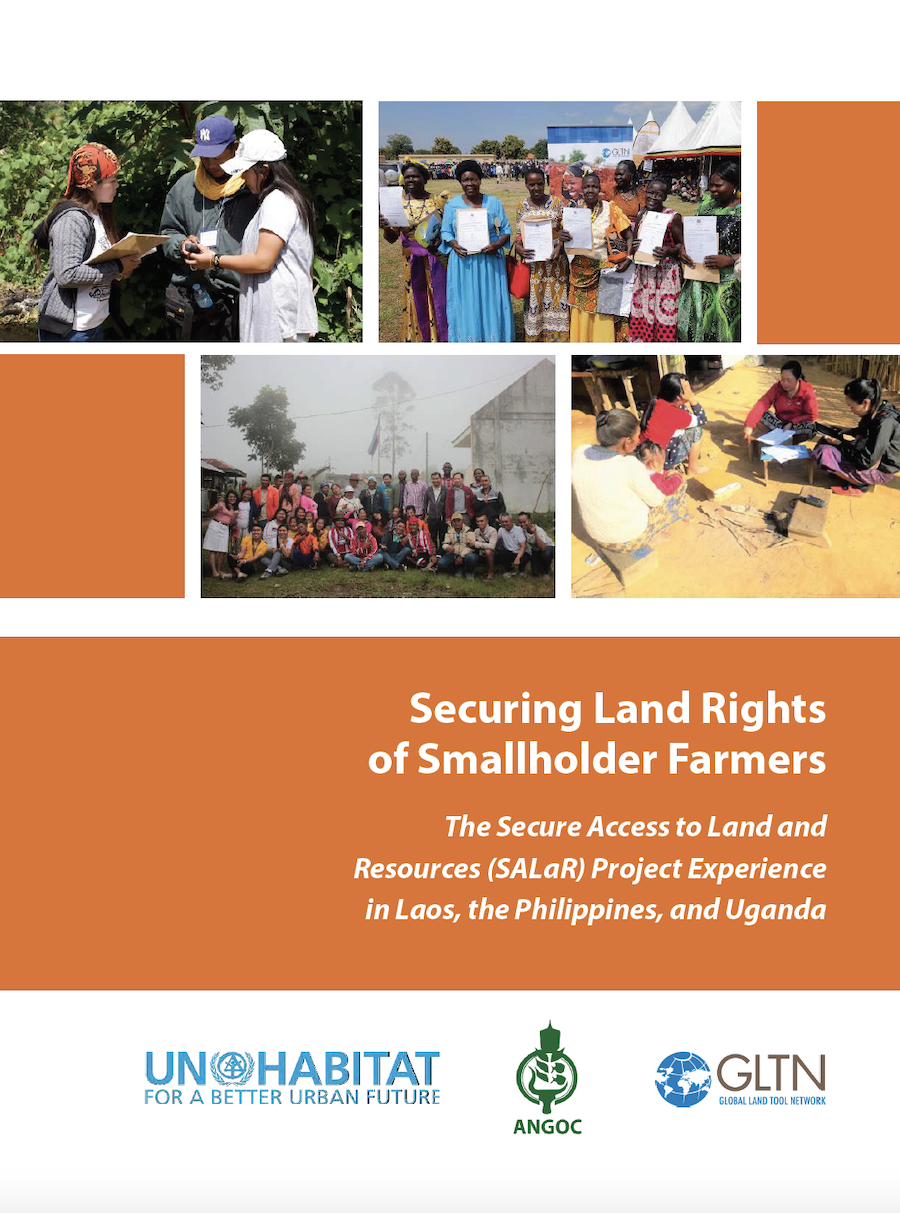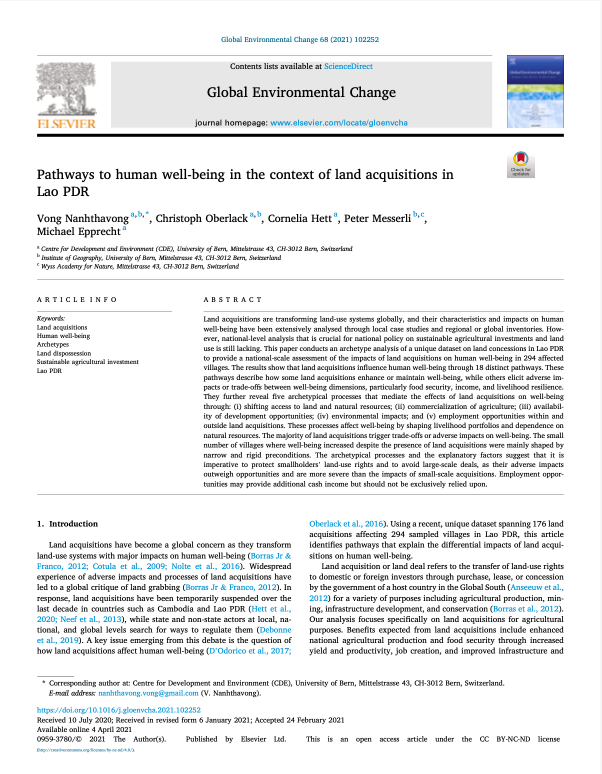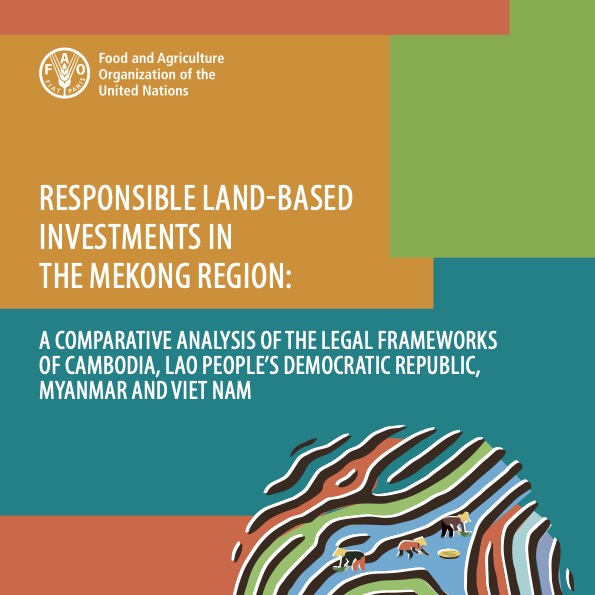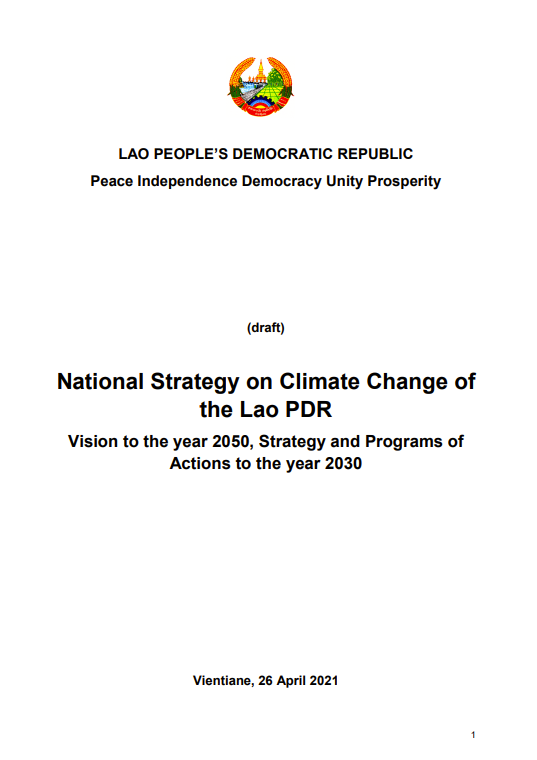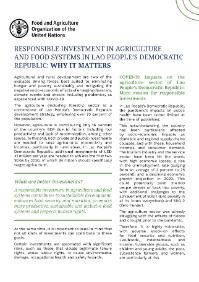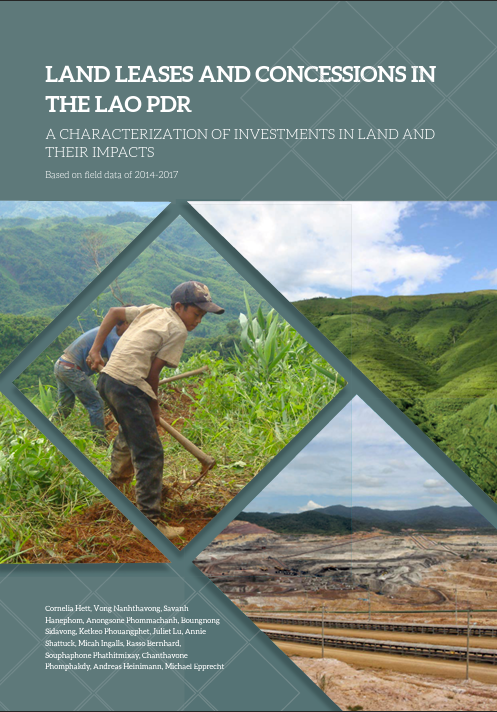The Global Programme 'Responsible Land Policy' (GPRLP) is part of the Special Initiative 'One World, No Hunger' of the German Federal Ministry for Economic Cooperation and Development (BMZ), which aims to reduce extreme poverty and hunger.
In Laos, the ‘Enhanced Land…
The Global Programme 'Responsible Land Policy' (GPRLP) is part of the Special Initiative 'One World, No Hunger' of the German Federal Ministry for Economic Cooperation and Development (BMZ), which aims to reduce extreme poverty and hunger.
In Laos, the Enhanced Land…
This report summarizes the background, achievements and emerging outcomes of the Securing Access to Land and Resources (SALaR) project implemented towards improving land and natural resources tenure security for rural poor smallholder farmers, including women, men, youth and vulnerable groups in…
<ul><li>Despite eight years of gradual decline due to low global commodity prices, the mining sector in Lao PDR still constitutes a key source of state revenue and an important destination for foreign direct investment, especially from China, Vietnam and Thailand.</li>
…
Land acquisitions are transforming land-use systems globally, and their characteristics and impacts on human well-being have been extensively analysed through local case studies and regional or global inventories. However, national-level analysis that is crucial for national policy on…
The recognition of customary tenure systems and responsible land-based investments that safeguard legitimate tenure rights and right holders are the interconnected main themes for mainstreaming the Voluntary Guidelines on the Responsible Governance of Tenure of Land, Fisheries and Forests in the…
Climate change is the greatest challenge facing our generation. It touches all segments of society and it jeopardizes the future prosperity of the global communities, including the Lao People’s Democratic Republic (Lao PDR). In Lao PDR, climate change has resulted in higher temperatures,…
Road expansion has played a prominent role in the agrarian transition that marked the integration of swidden-based farming systems into the market economy in Southeast Asia. Rural roads deeply altered the landscape and livelihood structures by allowing the penetration of boom crops such as…
The Annual Country Reviews reflect upon current land relations in the Mekong Region, and has been produced for researchers, practitioners and policy advocates operating in the field. Specialists have been selected from Cambodia, Laos, Myanmar, Thailand and Vietnam to briefly answer the following…
The agricultural sector is a cornerstone of Lao PDR’s development strategy, employing over 70 percent of the population. However, agriculture is contributing only 16 percent of the country’s GDP due to factors including low productivity and lack of modernization, among other issues. To unlock…
The management of land concessions and leases in the agriculture, tree plantation, hydropower and mining subsectors (referred to as land deals henceforth) is a crosscutting topic and involves a wide range of agencies of the Government of the Lao PDR (GoL) at various administrative levels, from…
In September 2015, the global community agreed on “The 2030 Agenda for Sustainable Development”, including 17 Sustainable Development Goals (SDG) and 169 targets. Goal 15 urges countries to “protect, restore and promote sustainable use of terrestrial ecosystems, sustainably manage forests,…



